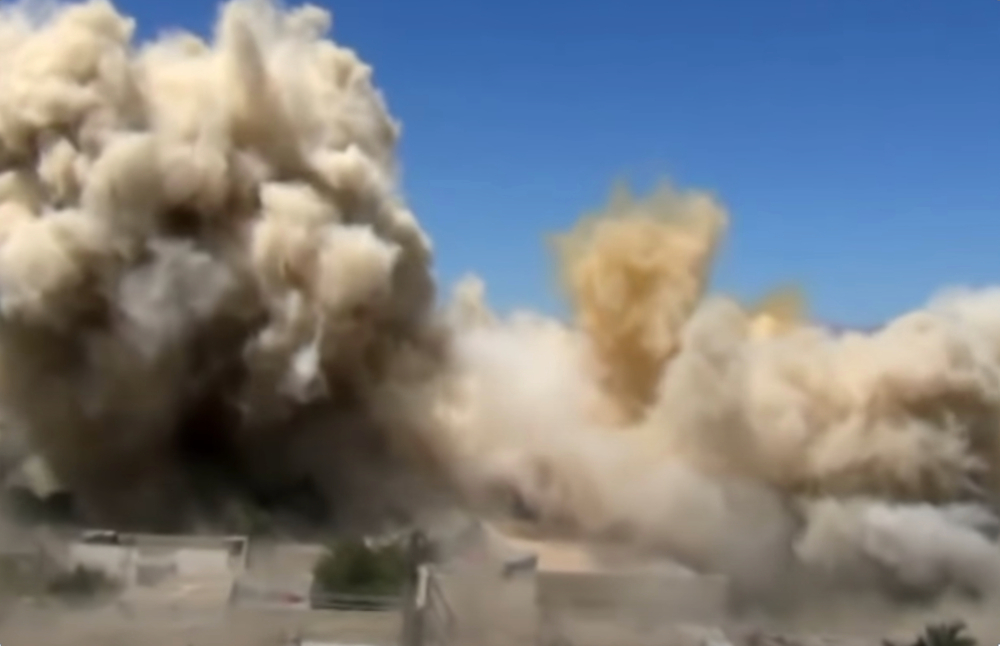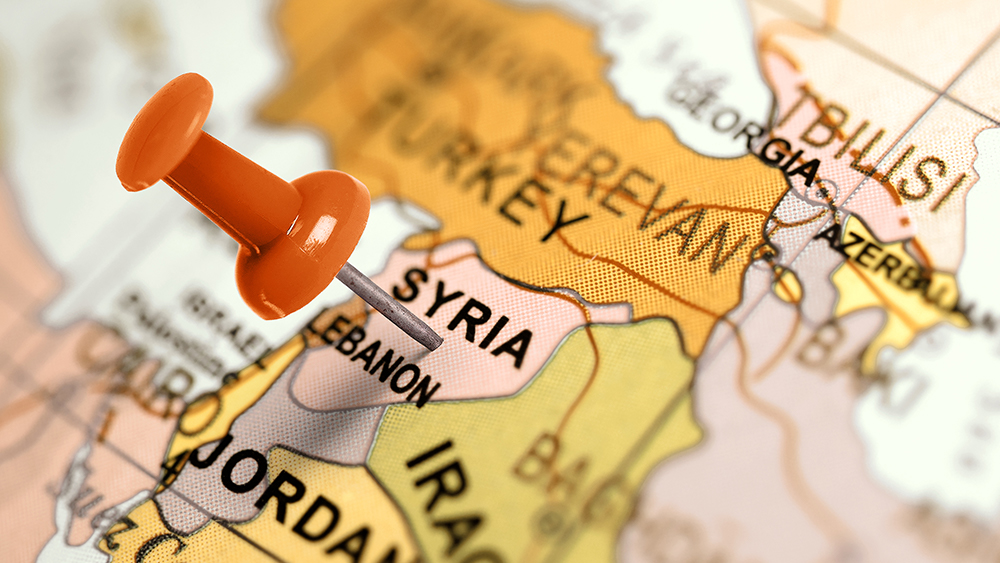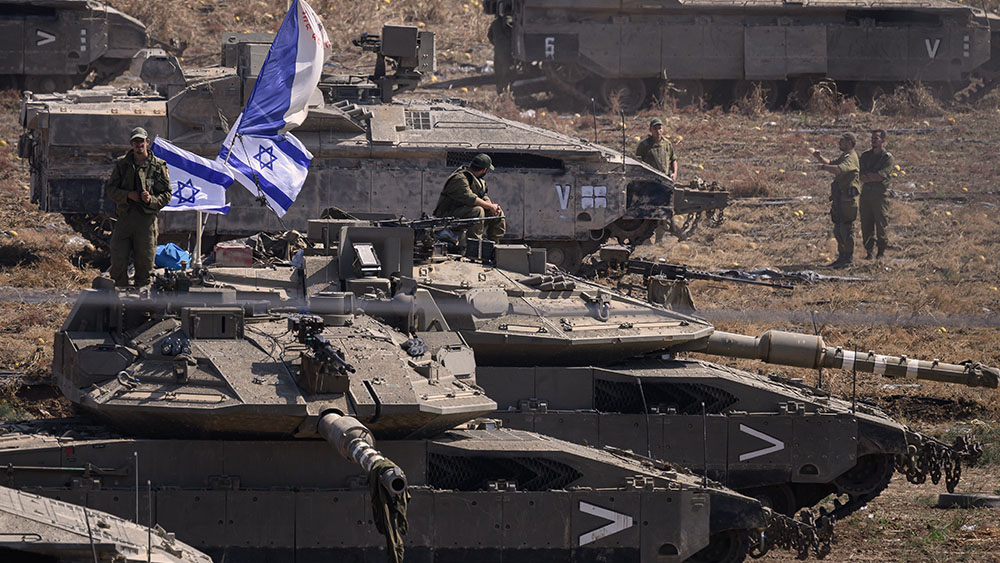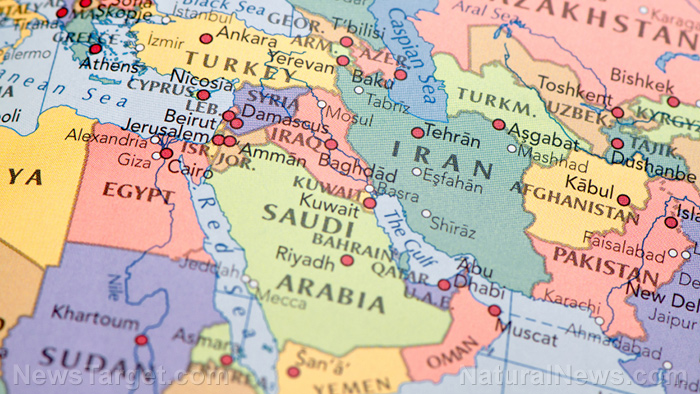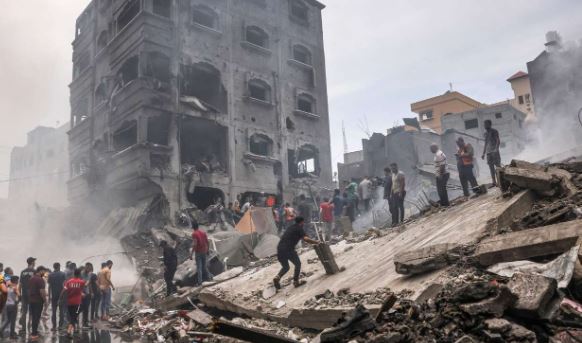IDF’s more than 300 airstrikes wipe out 80% of Syrian strategic military assets
12/15/2024 / By Belle Carter
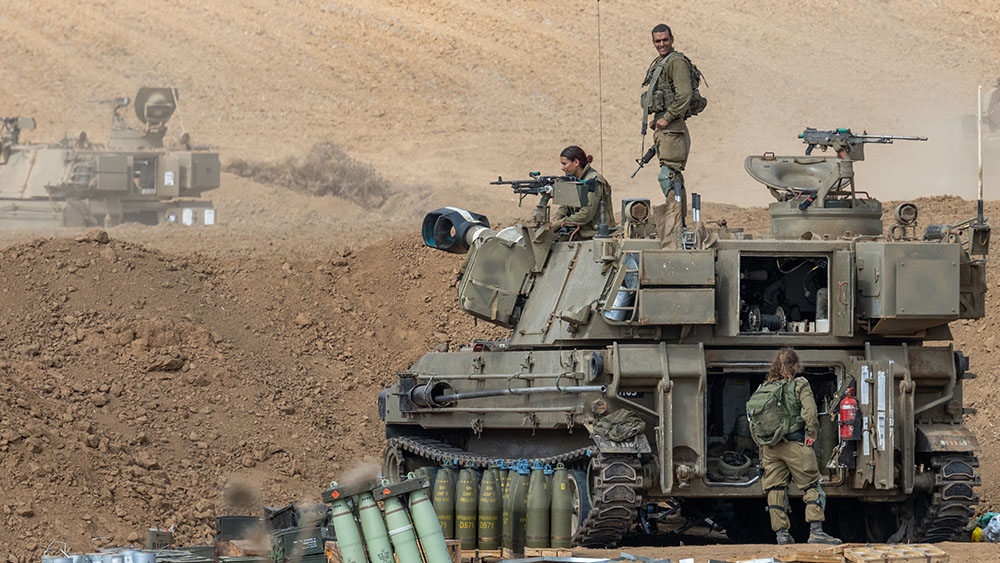
- Israel conducted 350 airstrikes on Syria, targeting strategic weapons stockpiles and crossing into Syrian territory, including the Golan Heights and Mount Hermon. This extensive operation reflects Israel’s broader ambitions in the region.
- Israeli officials claim the strikes aim to prevent extremist groups from obtaining weapons, but the scale and reach of the attacks suggest an underlying agenda to reshape the Middle East’s power dynamics.
- Despite the U.N.’s condemnation, the United States has remained notably silent on the issue. The absence of criticism raises questions about potential tacit support and regional stability trade-offs.
- Israel’s actions have exacerbated the already fragile situation in Syria, creating a power vacuum and further destabilizing the region. This aggressiveness risks retaliation and complicates potential regional peace efforts.
- The U.N. has strongly condemned the actions as violations of international law, warning of the implications for Syria’s sovereignty. The global community faces renewed calls for decisive measures to counter such unilateral aggression, given the significant risks to regional and global peace.
Israel unleashed a staggering 350 airstrikes on Syria, decimating the country’s strategic weapons stockpile. Prime Minister Benjamin Netanyahu claimed these strikes were aimed at preventing extremist groups from obtaining dangerous arms.
As Syria’s government collapsed and President Assad fled to Russia, Israel saw an opportunity to exert its dominance over the region. This wasn’t just a defensive move; it was a calculated, aggressive campaign to reshape the Middle East’s political landscape. By not only targeting Syria’s military assets but also moving into Syrian territory, Israel has crossed a dangerous line.
The justification given by Israeli officials – that they’re acting to prevent terrorists from acquiring weapons – feels like a pretense for a broader, more ambitious goal. The sheer scale of the attack and its reach beyond the demilitarized zone suggest a power grab, rather than a simple security operation.
The move into Syria’s Golan Heights, with troops taking control of Mount Hermon, showcases Israel’s ambition. This strategic mountain peak is now under Israeli military control, providing a commanding view over southern Syria. The justification provided – that it offers “strategic control” over the southern Syrian arena – is a thinly veiled claim of dominance. (Related: Middle East tensions flare up as Netanyahu declares Israeli occupation of Golan Heights will be FOREVER.)
This is not the first time Israel has flexed its military muscles in the region. The country has a long history of intervening in Syria, Lebanon and other Middle Eastern countries, often under the guise of self-defense.
The situation on the ground in Syria is even more precarious now. With Assad gone, a power vacuum has emerged, potentially destabilizing the entire region. Israel’s aggressive intervention risks complicating an already complex situation. Instead of building bridges with regional actors, Israel has chosen the path of militarism and dominance.
Some Israeli military analysts view this as an opportunity, praising the operation as an unprecedented show of force. Yet, the long-term consequences are far from clear. By striking so decisively and moving into Syrian territory, Israel risks provoking retaliatory actions and escalating regional tensions. The line between defense and aggression is often blurry, and Israel’s latest move blurs it in stark detail.
What’s most alarming is the potential precedent this sets for future conflicts. If a major power like Israel can carry out such a bold, unilateral strike without significant international repercussions, what does this mean for global peace and stability? The reliance on military might over diplomacy sets a dangerous precedent, encouraging other nations to follow suit.
UN condemns Israeli aggression in Syria as Navy bases sustained heavy damage
The United Nations has condemned Israel’s recent military operations in Syria, calling them a blatant violation of international law and regional peace agreements. Despite the UN’s warnings, Israel has proceeded with a series of airstrikes and ground incursions that have further destabilized an already volatile region.
UN spokesman Stephane Dujarric minced no words in his address to reporters, declaring, “We’re against these types of attacks. I think this is a turning point for Syria. It should not be used by its neighbors to encroach on the territory of Syria.”
The violations, while not a first for Israel in the region, are particularly egregious given the fragile status of Syrian sovereignty following the tumultuous years of civil war. As world leaders and human rights organizations have long warned, such incursions only serve to prolong the suffering of civilians and complicate any potential path to lasting peace in Syria.
The U.N.’s characterization of these events as a “turning point” for Syria speaks volumes about the gravity of the situation. With each new incursion, Syria’s sovereignty is further eroded, and prospects for a stable, unified Syria seem ever more distant.
The international community, long frustrated with the lack of decisive action against Israeli military interventions, is now facing renewed calls for robust measures to counter such actions. The question remains whether the global response will be swift and decisive enough to prevent the region from spiraling further into instability and conflict.
Head over to IsraelCollapse.com for updates on the multi-front war Israel is waging against Middle Eastern nations.
Watch the video below that talks about the recent Israeli airstrikes that disable Syrian defense.
This video is from the Paul Davis UnCancelled channel on Brighteon.com.
More related stories:
Israel continues to unleash hell on Earth, with 250 new airstrikes across Syria.
Sources include:
Submit a correction >>
Tagged Under:
airstrikes, Benjamin Netanyahu, civil war, dangerous, escalation, Golan Heights, IDF, incursion, Israel, military assets, military tech, military technology, Navy bases, Russia, sovereignty, stockpile, Syria, terrorism, UN, violence, weapons
This article may contain statements that reflect the opinion of the author
RECENT NEWS & ARTICLES
COPYRIGHT © 2024 fallout.news
All content posted on this site is protected under Free Speech. fallout.news is not responsible for content written by contributing authors. The information on this site is provided for educational and entertainment purposes only. It is not intended as a substitute for professional advice of any kind. fallout.news assumes no responsibility for the use or misuse of this material. All trademarks, registered trademarks and service marks mentioned on this site are the property of their respective owners.

